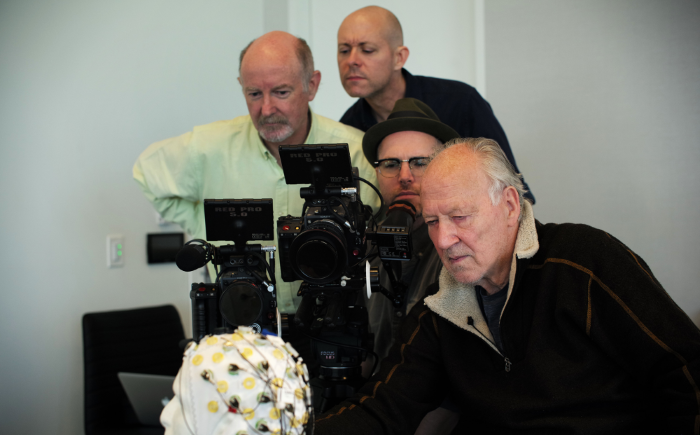Werner Herzog is incapable of making a documentary that fails to hold the viewer’s attention. His relentless and genuine curiosity about form and content ensures that his films are engaging. In many cases, they succeed for surprising reasons. Fireball: Visitors from Darker Worlds, his documentary about asteroids and meteors, was as captivating for its portrayal of a charming selection of scientists as for its exploration of celestial phenomena. Nomad: In the Footsteps of Bruce Chatwin stood out for allowing viewers to fall in love with the same subjects that had captivated the renowned writer himself. Theater of Thought, Herzog’s newest effort, tackles an equally vast but more intimate subject: the human brain.
That said, describing it as a documentary about the brain is a little misleading. It is neither a history of the brain nor a detailed analysis of its parts and functions. The brain may be the most expansive subject Herzog has tackled yet—perhaps too vast, with too many questions to explore. Instead, the film introduces viewers to a variety of scientists and their cutting-edge research, much of which involves the interface between brains and machines. Herzog was approached by Rafael Yuste, a longtime friend and eminent scientist, who becomes his collaborator and guide throughout. As a result, the documentary focuses less on defining what the brain is and more on exploring what people are currently discovering about it.
The material is undoubtedly fascinating. In perhaps the most compelling segment, Yuste introduces viewers to hydras, tiny creatures with just enough neurons to have a sense of self, and demonstrates on a microscopic screen how scientists have identified this phenomenon. Another scientist explains how different CAT-scanning machines can reveal how humans respond to predictability in storytelling. Yet another describes a machine capable of potentially curing Parkinson’s disease by stimulating the brain—a claim supported by remarkable video evidence. Several conversations delve into how machines can predict, read, or even influence thoughts. The scientists stress that while the more extreme applications of these technologies remain in the realm of science fiction, we are closer to that future than many might realize.
As intriguing and vital as this material is, Herzog seems to have bitten off more than he can chew. The film’s structure feels more like a series of quick glimpses at vast topics rather than a cohesive exploration. Herzog’s commentary often comes across as forced or tangential, and the film lacks a grounding framework. A brief overview of the brain’s structure, its functions, and the history of its study would have lent greater depth to the interviews and the questions posed. Add to this the lack of arresting visuals, which is highly unusual for Herzog.
Toward the end, the film takes a sharp turn as a few experts discuss the ethics of interfacing brains with machines. Here, the documentary finally sparks to life, hinting at what could have been a much more focused and compelling premise. Herzog insists that all the scientists he interviewed were deeply concerned about the ethical implications of their work. However, almost no one, until the very end, brings up ethical principles—not even the man manipulating the minds of mice. It’s impossible to hear about his work without considering how others might exploit it.
Though the brain and related new technologies are a fitting subject for Herzog, Theater of Thought is one of the rare instances where he has failed to fully explore the depths of his topic.







Leave A Comment